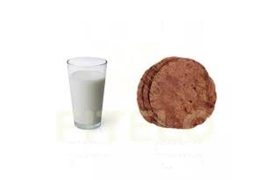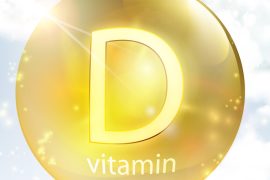What is Sports Nutrition
For any athlete’s success, sports nutrition is highly needed. A well-designed nutrition plan is certainly the best as far as sports nutrition for athletes is concerned. A proper diet plan allows active adults and athletes to perform at their best. Consumption of the right sports nutrition supplies the right food type, energy, nutrients, and fluids to keep the body well hydrated and functioning at peak levels. A sports nutrition diet may vary day to day, depending on specific energy demands.
Basics Food Groups for Sports Nutrition for Athletes
The energy required for living and physical activity comes from the food we eat and fluid intake. Macronutrients in the below-mentioned food groups supply the energy essential to optimal body function for sports nutrition for athletes.
- Carbohydrates – Carbohydrates are either simple or complex, and the most important energy source for the human body. Simple carbs include sugars naturally occurring in foods like fruits, vegetables, and milk. Whole grain bread, potatoes, most vegetables, and oats are examples of healthy complex carbs. Your digestive system breaks down carbohydrates into glucose or blood sugar which feeds energy to your cells, tissues, and organs.
- Proteins – Proteins are made up of a chain of amino acids and are essential to every cell of the human body. Protein can either be complete or incomplete. A complete protein contains all the amino acids needed by the body and includes animal sources like meat, fish, poultry, and milk. Incomplete protein sources such as plant-based proteins often lack one or more of the essential amino acids. Essential amino acids can’t be made by the body and must be supplied by food. Protein plays an important role in muscle recovery and growth.
- Fats – Fats can be saturated or unsaturated, and they play a vital role in the human body. Unsaturated fats are considered healthy and come from plant sources like olive oil and nuts. Saturated fats are found in animal products like red meats and high-fat dairy, which are indicated to increase the risk of disease.
Benefits of Sports Nutrition for Athletes
The ideal diet for an athlete is not very different from the diet recommended for any healthy person. And while certain sports require the athlete to fit a certain weight group or body fat. Below are some of the benefits of sports nutrition for athletes that span beyond just aesthetics.
- Enables you to train longer and harder
- Delays onset of fatigue
- Maintains a healthy immune system
- Enhances performance
- Improves recovery
- Improves body composition
- Reduces potential of injury
- Helps with focus and concentration
Diet Requirements for Sports Nutrition for Athletes
Below are some of the tips of diet requirements that one should adhere to lead an athletic lifestyle.
- Provide enough energy and nutrients to meet the demands of training and exercise.
- Enhance adaptation and recovery between training sessions.
- Include a wide variety of foods like wholegrain bread and cereals, vegetables (particularly leafy green varieties), fruit, lean meat and low-fat dairy products to enhance long-term nutrition habits and behaviours.
- Enable the athlete to achieve optimal body weight and body fat levels for performance.
- Provide adequate fluids to ensure maximum hydration before, during and after exercise.
- Promote the short and long-term health of athletes.
Best Nutrition to Boost Athletic Performance
1.) Grains – Grains are considered one of the best sports nutrition for athletes. Whole grains should be prioritized in the diet because of their greater vitamin, mineral, and fibre content compared to white refined grain products. These sources are rich in carbohydrates, vitamins, minerals, and fibre which contribute substantial resources for high-intensity activity and recovery. Depending on physical activity level, these high-starch foods should be consumed in amounts equivalent to one-two fist at each meal, especially those before exercise.
2.) Fruits and Vegetables – The consumption of fruits and vegetables are considered one of the best sports nutrition for athletes. These two crucial food groups should together compose about half of your plate or 50% of each meal. They provide carbohydrates, vitamins, minerals, fibre, water, and antioxidants which work together to serve as energy, hydration, digestion and recovery from any injury. The serving size of fruit and starchy vegetables such as corn, peas, and potatoes is about a fist, while a serving of vegetables is two fists.
3.) Proteins – Proteins are considered one of the best sports nutrition for athletes. This essential ingredient is important for sports performance and is considered the best to boost immunity for athletes. For every extensive exercise and physical demand activity, foods equipped with protein should be considered. Athletes spend more time in rigorous activities than a normal person, in such a scenario having a protein-rich diet will help to reduce muscle soreness after every extreme training session.
4.) Dairy Products – Dairy Products are considered one of the best sports nutrition for athletes. This food group is packed full of calcium, complete proteins, potassium, and carbohydrates, to name a few. This combination of nutrients provides the necessary components for energy production, muscle contraction/recovery, and bone strength. Athletes need to consume 2-3 cups of low-fat dairy or dairy alternatives a day in the form of cow’s milk/fortified plant-based beverages, yoghurt, or cheese.
5.) Probiotics – Probiotics are considered one of the best sports nutrition for athletes. The usage of probiotics will enhance the immunity of athletes during their harsh training processes. Probiotics are indeed good bacteria that can boost the levels of naturally occurring beneficial bacteria in the gut. The word probiotic means “for life,” which is the opposite of antibiotic. The usage of antibiotics indiscriminately kills both bad and good bacteria, whereas Probiotics, or Direct-Fed Microbials (DFMs), help to keep our intestinal microflora to a healthy state, thus making the right inflow of good bacteria into it.
Disclaimer:
The information contained in this article is for educational and informational purposes only and is not intended as a health advice. We would ask you to consult a qualified professional or medical expert to gain additional knowledge before you choose to consume any product or perform any exercise.








